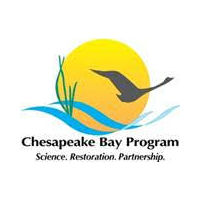
For only the third time, leaders from both state departments of natural resources and education came together to recognize the importance of working in a collaborative manner to advance environmental literacy throughout the Chesapeake Bay watershed. Discussions throughout the day focused on the best way in which to foster partnerships to provide equity in environmental education, and share challenges and successes associated with providing diverse environmental education instruction to all ages and levels of students.
Pamela Northam, the First Lady of Virginia, served as the keynote speaker for the day. Other speakers included Tia Brumsted, deputy assistant superintendent for health and wellness with the District of Columbia Office of the State Superintendent of Education, Ben Grumbles, secretary of the environment for Maryland, Atif Qarni, secretary of education for the Commonwealth of Virginia, Dr. Karen Salmon, state superintendent of schools for Maryland and Dr. David Volkman, executive deputy secretary for the Department of Education for the Commonwealth of Pennsylvania. Representatives from the Chesapeake Bay Foundation, Chesapeake Bay Trust, Choose Clean Water Coalition, National Aquarium, National Oceanic and Atmospheric Administration (NOAA) Chesapeake Bay Office, Potomac Environmental Research and Education Center, Potomac Valley Audubon Society and Virginia Resource Use Education Council shared their perspectives on using environmental literacy to address inequities in our education system and discussed strategies for how to overall increase diversity into the environmental movement.
Students representing schools from around the Chesapeake Bay watershed shared their own testimonials on the importance of Meaningful Watershed Educational Experiences (MWEEs). A key component of environmental literacy programming, MWEEs connect standards-based classroom learning with outdoor field investigations to allow students to develop a deeper understanding of the natural environment.
The Chesapeake Bay Program, a regional partnership of federal, state and local governments, academic institutions and non-profit organizations, acknowledges that the restoration of the Bay depends on the individuals and communities living within the watershed, while its future rests in the hands of its youngest residents. In the Chesapeake Bay Watershed Agreement, the partnership committed to enable students throughout the Chesapeake region to graduate with the knowledge and skills needed to act responsibly in protecting and restoring their local watersheds, as well as increase the number and diversity of people who support and carry out conservation and restoration work.
In 2018, the Chesapeake Bay Program’s Principals’ Staff Committee committed to biennially convening high-level leaders in both education and the environment to discuss progress toward the partnership’s environmental education goals. In August 2018, Chesapeake Executive Council Chair and Maryland Governor Larry Hogan called on his fellow watershed states to use the data and information collected by the Chesapeake Bay Program to develop strategies to equitably direct their resources toward ensuring all students have access to outdoor learning experiences and a sustainable school environment. Chesapeake Executive Council member, Governor Ralph Northam requested that Virginia host the 2019 summit.










